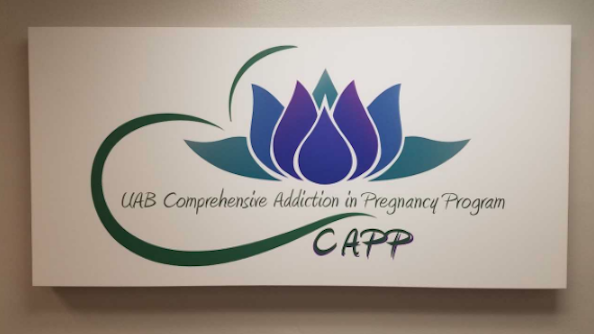Alabama’s Chemical Endangerment Law makes it a felony offense to use drugs during pregnancy. A UAB program funded by the U.S. Department of Health and Human Services wants to redirect the focus from criminalizing a woman’s addiction to treating it.
The Comprehensive Addiction in Pregnancy Program, or CAPP, is designed to address the needs of women who are pregnant and dealing with substance abuse. Dr. Lorie Harper is the medical director of the program.
“[Patients] can come just to this one little area and get addiction care, pregnancy care, social work and family services, and case coordination,” Dr. Harper says.
Harper says normally, women receive prenatal care separately from addiction recovery services. There can be a lack of communication between providers and women may not obtain adequate treatment. Additionally, women are often anxious about whether they will be in trouble after they deliver.
Abbie, who asked us not to use her last name, is one of the 16 participants enrolled in CAPP. She has struggled with an addiction to heroin and prescription drugs, but has been sober since starting the program.
“They teach us about you know, how to cope, while being pregnant and being a recovering addict, so it’s really helpful,” she says.
Abbie says she is ready to be a mom, and she is not worried about losing custody after birth. That is the goal, according to Suzanne Muir, project director of CAPP. Muir helped start the CAPP program after seeing women separated from their babies and sent to jail due to Alabama’s Chemical Endangerment Law, which criminalizes drug use during pregnancy.
“We’re hoping that more women leave the hospital with their baby,” Muir says, “because we can intervene with them early and get them the necessary treatment.”
The Comprehensive Addiction in Pregnancy Program began accepting patients in April. It is funded for five years, with plans to increase recruitment over time. The next group of participants begins treatment in September.

